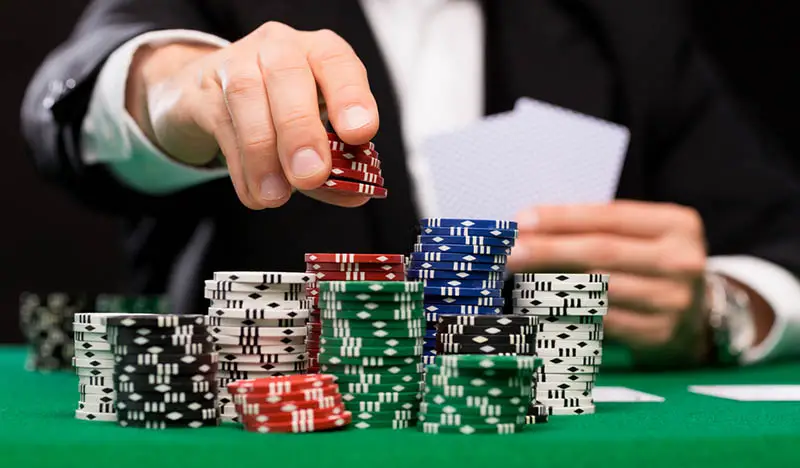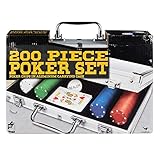

-
Don't play every hand and fold more
Probably the number one mistake that beginning poker players make. They play far too many hands.
When you're just starting out playing poker, you want to play poker, and that means staying in hands that aren't very good just to be part of the action.
But playing more doesn't mean winning more, it usually means losing more.
If you find you're staying in half or more the hands you're dealt, you need to upgrade your starting hand requirements.
-
Look for reasons to fold
Always look for a reason to fold. Remember that poker is a marathon, not a sprint.
Selective aggression is the key to winning at poker in the long run.
-
Be Patient
Poker require a heavy amount of patience.
Sometimes you have a strong hand every 2 minutes, while other times it seems like you haven't had a good hand in hours.
The averages will balance out. So, be true patience and your poker game will drastically improve.
-
Don't play drunk
While you may be more relaxed after 2 drinks, it may lead to you playing looser and less sharply even if you are NOT drunken.
-
Don't bluff too much
A lot of beginner know that bluffing is a part of poker, but not exactly how to do it. There's is NO rule that one must bluff a certain amount or at all during a poker game.
Bluffs only work in certain situations and against certain people. It's better never to bluff than to bluff "just to bluff".
-
Get caught bluffing
Don't be afraid to bluff and get caught.
Getting caught will give them the hint that you're reckless while making your play unpredictable.
-
#Checking with a big hand
When getting dealt a big two cards, be it a Ace-King suited or pocket Kings etc consider just checking and see what the table has to lures the rest into false sense of security.
This gives the opportunity to call a bet or re-raise, increasing the pot most likely to your favor.
-
Pay much attention to the cards on the table
It's very important to look at what's going on at the table. Especially, in Texas Hold'em, figure out what the best possible hand would be to fit the flop.
Make sure you notice flush & straight possibilities.
-
Do Pay Attention to the Other Players
As you play, one of the single best things you can do is observe your opponents, even when you're not in a hand. If you know if one player always raises in a certain position, & another has a pokerface when he bluffs, & a 3rd folds to every re-raise, you can use that information to help you decide how to play against them.
Once you know that player 3 always folds to a re-raise on a river, that's when you can bluff & steal a pot.
-
Don't play at too high limits
There are many reasons people move up to a higher limit game than they usually play.
Don't play at stakes that make you think about the actual money in terms of day-to-day life or with money you can't lose.
-
Reraise with flush draw in position
Behind you a player is raising when you have a flush draw in position, then give him a small re-raise.
That way you can often see two more cards without paying the next bigger bet. If you hit on turn you can go on betting.
-
Fold in tournaments
In tournaments, the best thing to do most of the time is fold. Play only when you have really big hands.
Don't lament the small fish that got away.
-
Make sure your straight is best
Too many times I see amateurs beat by a larger straight.
When your whole cards complete the high end of a straight, you should bet aggressively.
When the board completes the high end of the straight be cautious!
-
Don't play when you feel emotional, angry or in a bad mood
You never should play to escape from being depressed or a really bad day.
You will play emotionally and not rationally.
If during a poker game, you lose a big hand and you feel yourself going on tilt, stand up and take a break before you continue.
-
Don't stay in a hand because you're already in it
A common mistake players make is to think that "I've already put that much in the pot, I have to stay in now".
You can't win a pot just by throwing money at it. There's no way your hand can improve to be the best hand by throwing more money on the table.
Think like this: the money you've already put in the pot isn't yours anymore and you can't get it back just by playing a hand all the way to the end.
-
Bet and Raise to eliminate competition
Your chips are your ammunition. One way to increase your odds is to induce folding by making a bet.
-
Don't ever give up
Never give up, even when you are down to one chip. The player with the smallest stack often can do a comeback.
-
Bet the draw
When you have draw especially a large one like a flush or open ended straight draw more often than not it is best to bet it.
Continue Reading


